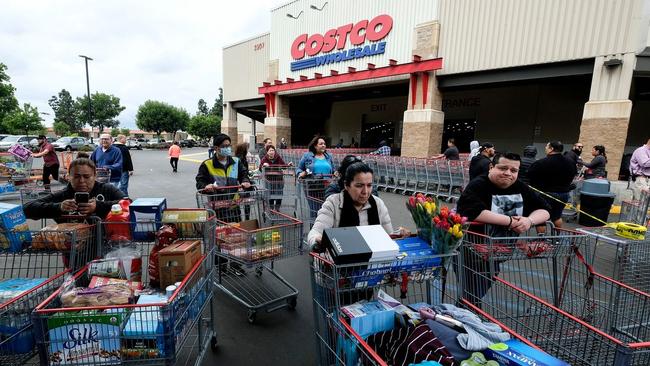Banks get tough on credit approvals
Financial technology firms are starting to toughen their approval standards for new loans to consumers and small businesses.

US banks and financial technology firms are starting to toughen their approval standards for new loans to consumers and small businesses. That means many people could find it hard to get credit just when they most need it, as the novel coronavirus pandemic puts thousands out of work.
Large US lenders including JPMorgan Chase, Bank of America, Capital One Financial and Santander Consumer USA were among the companies reviewing and revising certain lending criteria, sources said. Planned moves include approving fewer consumers with lower credit scores, asking for more income documentation and placing lower spending limits on new credit cards.
American Express has scaled back financing offers to small businesses. Fintech lenders Square and On Deck Capital said this week they would do the same.
About half a dozen lenders that have found borrowers through Fundera, an online marketplace for small-business loans, had paused new extensions of credit, Fundera CEO Jared Hecht said. “Lenders have zero idea how to assess risk in this environment,” Mr Hecht said. “There is no model that can predict today if I lend one dollar, will I get paid back?”
Lenders are concerned that rising unemployment and a potential recession will send loan defaults soaring. The moves suggest at best a pause and at worst an end to six-plus years of a bull run in credit, where financial firms have been eager to lend and underwriting standards for credit cards, car loans and personal loans have been relatively loose.
Lenders are scrutinising applications for credit cards and personal loans in particular because consumers often turn to them when they are in a bind. They are usually unsecured, which means lenders have little recourse if a borrower defaults, and they can be the first loans people stop paying when money is tight.
Many lenders have said they would work with existing borrowers who ask for help. Some lenders, for example, are increasing card spending limits or delaying due dates on loans.
But lenders are reluctant to take on additional risk from new customers.
“Even people who applied (for credit) in the last two weeks are more vulnerable (now) than when they applied,” said Brian Riley, director of credit advisory services at Mercator Advisory.
Loan solicitations by email have dropped for both credit cards and personal loans, according to market-research firm Competiscan. AmEx, Bank of America and JPMorgan have sent almost no card solicitations in more than a week.
The changes could be most painful for low-wage workers such as waiters and hotel employees uncertain when their next pay cheque will arrive. Some lenders say they have noticed consumers applying for credit at several lenders at the same time, a sign they are reaching for credit lifelines while they can still get them.
Some lenders also are discussing whether they should lower spending limits on cards that consumers haven’t used in a long time. They worry consumers will pull out old cards and use them to buy items they can’t afford.


